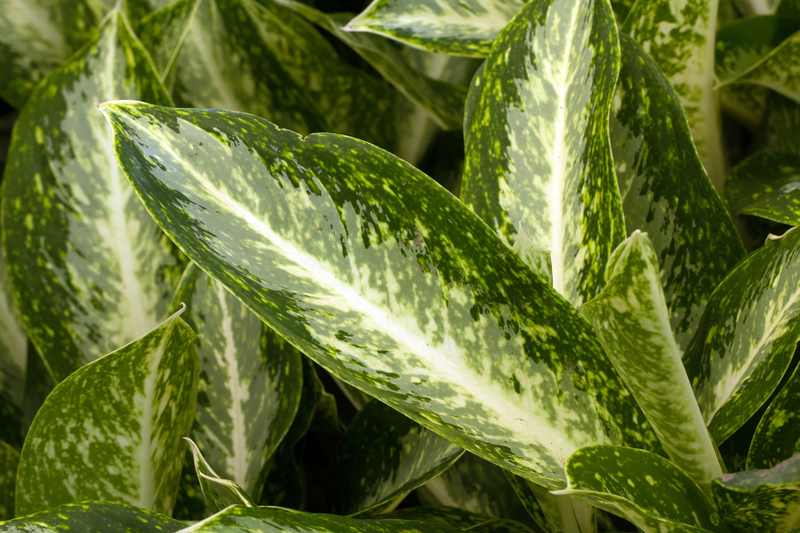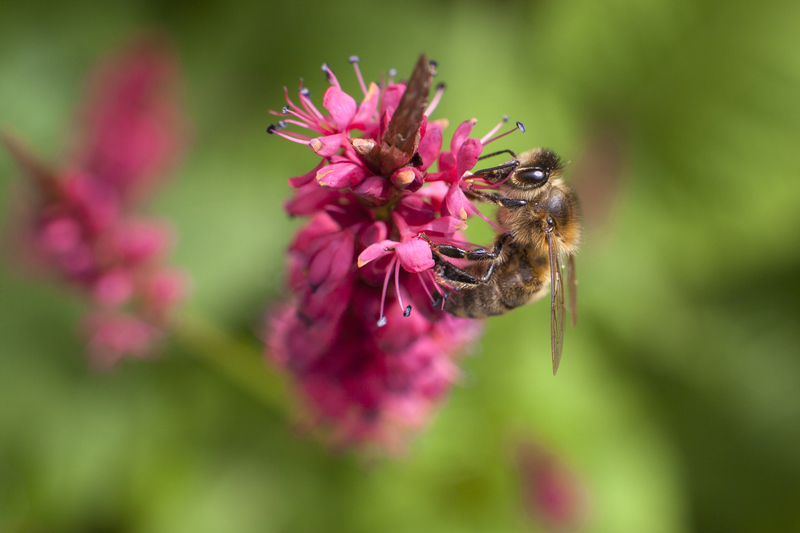Transform your outdoor space with 9 essential gardening tips tailored for beginners
Posted on 13/06/2025
Transform Your Outdoor Space with 9 Essential Gardening Tips Tailored for Beginners
Are you looking to transform your outdoor space but don't know where to start? Whether you dream of lush greenery, vibrant flowers, or simply a peaceful retreat, these 9 essential gardening tips for beginners can help you unlock the full potential of your garden.
Why Start Gardening? The Benefits of Cultivating Your Outdoor Space
Gardening isn't just about plants--it's about creating a beautiful, relaxing, and productive space that enhances your well-being. From improving your home's curb appeal to providing fresh vegetables and a sanctuary for wildlife, gardening can be an immensely rewarding hobby. Even if you're new, these practical gardening tips for beginners will take the mystery and intimidation out of the process, ensuring you enjoy every minute spent outdoors.

1. Assess Your Outdoor Environment
Know Your Garden's Personality
Before you dig a single hole or buy a plant, get acquainted with your garden space. Evaluating the light, soil, and climate conditions is crucial for successful gardening--especially for beginners.
- Sunlight: Observe which areas get full sun (6+ hours/day), partial shade, or full shade.
- Soil: Is your soil clay, sandy, or loamy? Test its drainage by watering a patch and watching how quickly it absorbs.
- Climate: Understanding your local hardiness zone is vital for choosing plants that thrive.
Start with a simple sketch of your space--mark trees, pathways, and bright/shady spots. This will guide all your future decisions.
2. Start Small and Choose Manageable Projects
Beginner Gardening Success Starts with Simplicity
Resist the temptation to overhaul your entire outdoor living space at once. Focus on a small, manageable area--perhaps a patio border, container garden, or raised bed. Starting small allows you to learn, experiment, and build confidence without becoming overwhelmed.
- Start with a 4'x4' vegetable bed or a set of flower pots.
- Choose plants that require less maintenance, such as marigolds, lettuce, or succulents.
- Gradually expand as your skills and enthusiasm grow.
Remember: It's easier to keep a small space looking great and flourishing, making gardening enjoyable rather than stressful.
3. Select the Right Plants for Your Space
Match Plants to Your Garden Conditions
Your outdoor transformation depends on selecting the right plants for your environment, taste, and effort level.
- Read plant labels: These include details about sunlight, soil, spacing, and water needs.
- Go native: Native plants are adapted to your climate, requiring less maintenance and attracting pollinators.
- Mix and match: Blend annuals (which bloom and die in one season) with perennials (return year after year) for continuous interest.
When in doubt, consult with your local garden center or extension office for recommendations best suited to your region.
4. Plan Your Layout--Design with Purpose
Designing Your Beginner Garden
Good design turns a collection of plants into a harmonious outdoor haven. Think about your goals: Do you want a flower-filled retreat, a productive vegetable patch, or a wildlife-friendly space?
- Group plants by sun/shade preference and watering needs.
- Layer heights: Place taller plants at the back (or center, if round), and shorter ones up front.
- Create focal points: Use a bench, sculpture, or eye-catching plant as a central feature.
- Paths: Simple stepping stones or gravel walks make gardens inviting and accessible.
Planning your layout now saves headaches later--and helps ensure that every area shines.
5. Prepare the Soil for Success
Healthy Soil = Healthy Plants
Ask any seasoned gardener--the secret to a thriving outdoor space transformation is great soil. Most garden soil benefits from amendments to boost fertility and drainage.
- Test your soil: Kits are inexpensive and reveal pH and nutrient levels.
- Add organic matter: Mix in compost, aged manure, or leaf mold for rich, crumbly, well-drained soil.
- Don't forget mulch: Mulch suppresses weeds, locks in moisture, and keeps plant roots cool.
Spending time to properly prepare your soil will lead to healthier, more productive plants for years to come.
6. Master Watering--Consistency Is Key
Efficient Watering for Beginner Gardeners
Over- or under-watering are common pitfalls for those new to gardening. Here's how to get it right:
- Water deeply, not frequently: Shallow waterings promote weak roots. Instead, water less often but thoroughly.
- Early or late: Water in the morning or early evening to minimize evaporation.
- Mulch helps: A layer of organic mulch holds in soil moisture and reduces watering needs.
- Check the soil: Insert a finger--if it feels dry an inch down, it's time to water.
Tip: Rain gauges and soaker hoses are affordable tools to improve your watering accuracy and garden health.
7. Maintain and Prune Regularly
Routine Care Keeps Your Outdoor Space Beautiful
Regular maintenance is essential for any lush, inviting outdoor environment. To keep things looking their best:
- Deadhead spent flowers to encourage reblooming in annuals and perennials.
- Prune shrubs and trees: Remove broken, diseased, or crossing branches each season.
- Weed control: Pull weeds by hand or use mulch to prevent them from taking over.
- Feed your plants: Apply balanced fertilizer during the growing season to boost growth and blooms.
Spending just 10-15 minutes a day on simple tasks will reward you with a thriving, low-maintenance garden all season long.
8. Encourage Biodiversity--Invite Nature In
Support Pollinators and Wildlife
Biodiversity not only helps your garden flourish but adds charm and ecological value to your outdoor living space. Here's how to attract beneficial creatures:
- Grow a variety of flowers to provide nectar for bees and butterflies.
- Add a birdbath or small pond to draw birds and helpful insects.
- Plant native shrubs and grasses for shelter and food sources.
- Avoid chemicals: Limit use of pesticides and herbicides, opting for organic or natural solutions.
Did you know? Biodiverse gardens are generally healthier, more resilient, and easier to maintain!
9. Learn and Grow--Mistakes Are Part of the Process
Grow Your Knowledge, Grow Your Garden
No garden is perfect--and every beginner gardener will encounter challenges. The most important tip of all is to embrace mistakes as learning opportunities.
- Document your garden: Keep a journal with notes on what works, what doesn't, and why.
- Ask for help: Join local garden clubs, attend workshops, or follow gardening blogs for support and inspiration.
- Have patience: Gardens evolve over time. Celebrate the small successes!
A learning mindset turns every setback into future success.
Frequently Asked Questions for Beginner Gardeners
Common Questions About Transforming Your Outdoor Space
-
Q: How do I keep my garden low-maintenance?
A: Use mulch, choose native or drought-tolerant plants, and group similar plants together to simplify care. -
Q: What are the easiest plants for beginners?
A: Herbs (like basil and mint), sunflowers, marigolds, and salad greens are all forgiving and quick to show results. -
Q: How much should I water my garden?
A: Aim for about one inch of water per week, adjusting for rainfall, soil, and plant needs. -
Q: Can I garden in containers if I don't have much space?
A: Absolutely! Container gardening is perfect for patios, balconies, and beginners.

Bonus Tips to Transform Your Outdoor Space
- Light it up: Use solar lights to make your garden magical after dark.
- Add vertical elements: Trellises, arches, or wall planters maximize small spaces.
- Paint or decorate fences and furniture for instant color impact.
- Include seating to enjoy your handiwork and invite friends outdoors.
Conclusion: Your Journey to a Beautiful Outdoor Haven
If you're excited to transform your outdoor space with these 9 essential gardening tips tailored for beginners, remember that every great garden starts with a single step. By evaluating your environment, starting small, selecting the right plants, and applying these proven gardening methods, you are well on your way to a thriving, stunning oasis right outside your door.
Gardening for beginners isn't just a hobby--it's an adventure, a creative outlet, and a way to connect with nature. With patience and these practical gardening strategies, you'll soon see the rewards bloom before your eyes. Happy gardening!
Latest Posts
Designing a Calm and Relaxing Zen Garden in Your Backyard
From Simple to Sculptural: Hedge Trimming Techniques Revealed

